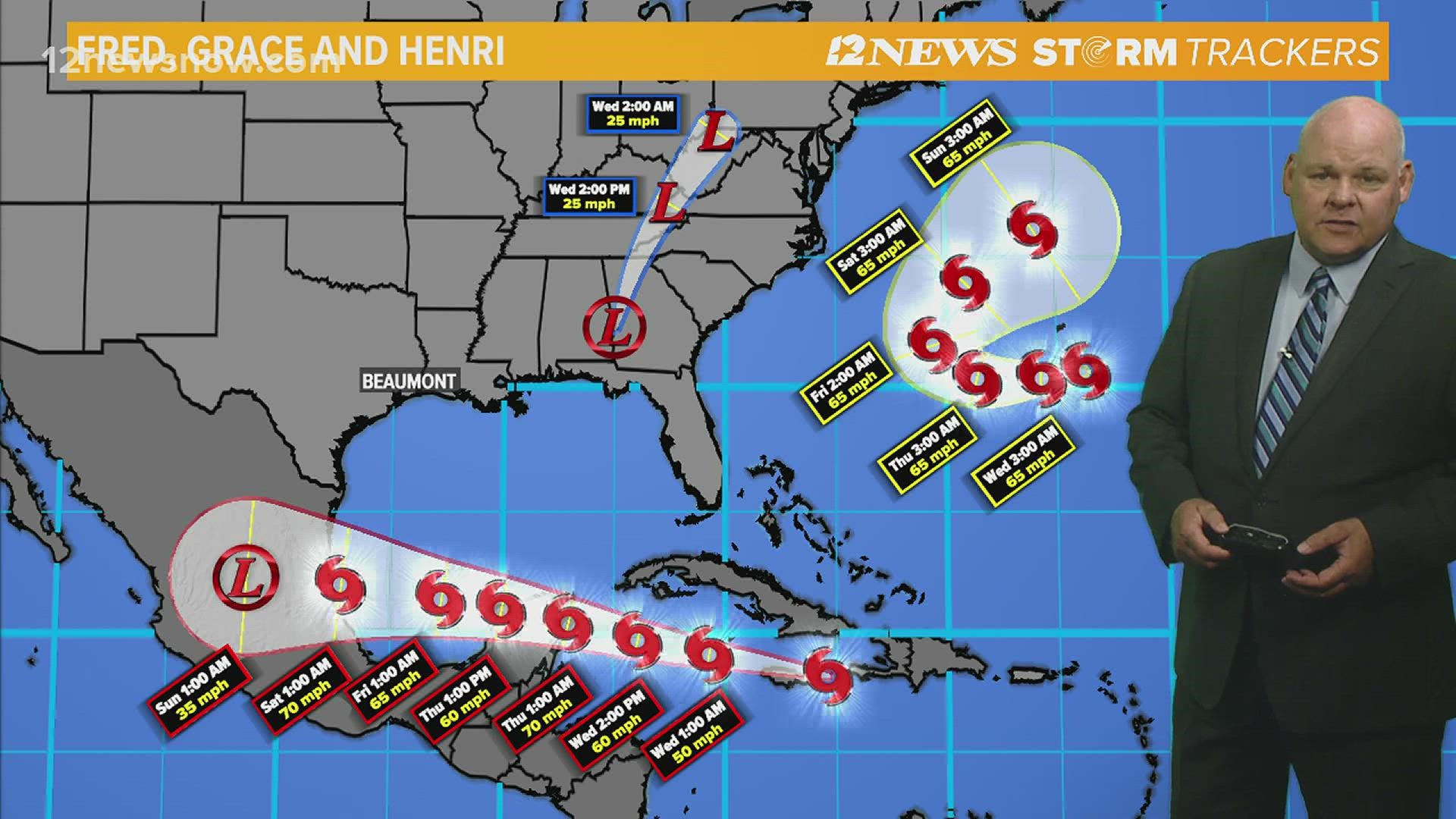BEAUMONT, Texas — The 12News StormTrackers are continuing to monitor Tropical Cyclone Fred.
The remnants of Fred are moving through Pennsylvania and New York and is producing flash flooding and tornadoes. There's a moderate risk of flash flooding over portions of Pennsylvania and New York.
Fred is moving toward the north-northeast near 14 mph and this motion with an increase in forward speed is expected to continue for the next day or so.
On the forecast track, the center of Fred will move across western and northern Georgia today, across the southern Appalachian Mountains tonight, and into the central Appalachians by early Wednesday.
Maximum sustained winds have decreased to near 35 mph (55 km/h) with higher gusts.

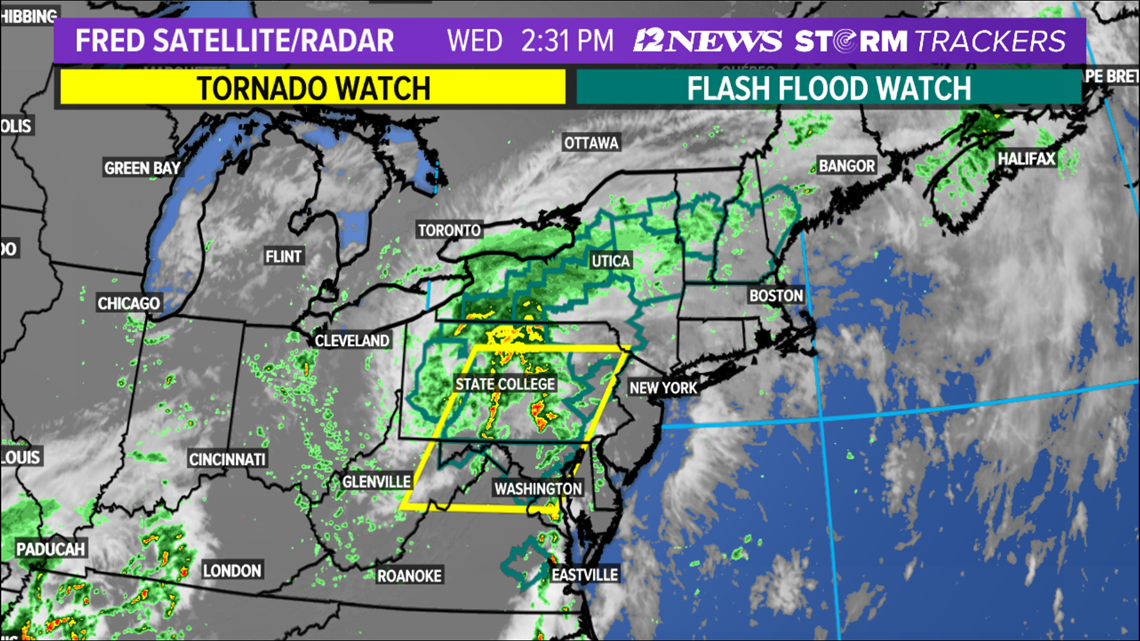
Additional weakening is forecast during the next couple of days and Fred is expected to degenerate into a remnant low by tonight and merge with a frontal system on Wednesday.
From the National Hurricane Center at 10 a.m. CDT...
At 1100 AM EDT (1500 UTC), the center of Post-Tropical Cyclone Fred was located near latitude 39.5 North, longitude 80.7 West.
The post-tropical cyclone is moving toward the northeast near 20 mph and this motion is expected to continue today with a gradual turn east tonight.
Maximum sustained winds are near 25 mph (35 km/h) with higher gusts. Little change in strength is forecast during the next 48 hours.
The estimated minimum central pressure is 1013 mb (29.92 inches).
This is the National Hurricane Center's final advisory on this system.
2021 Hurricane Season Outlook
The 2021 Atlantic Hurricane Season is forecast to produce more storms than average. The reason for this is the lack of El Nino, which typically features more wind shear. We also expect warmer than average sea temperatures and an active West African Monsoon.

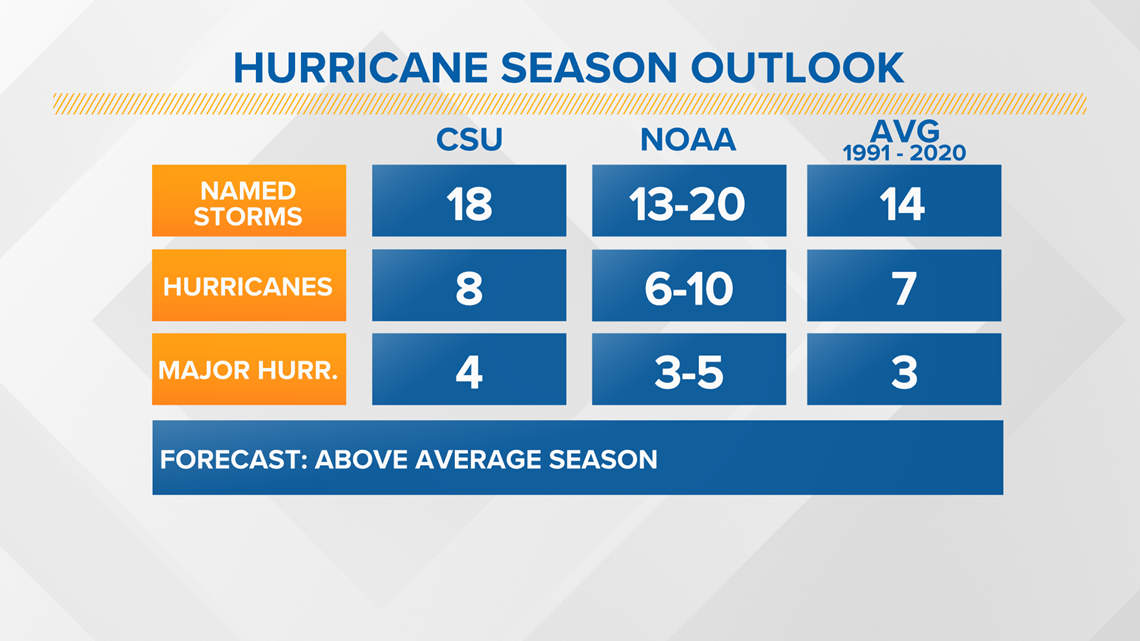
After a record-breaking 2020 hurricane season, we now know the Greek alphabet will no longer be used to name storms.
The World Meteorological Organization announced the Greek alphabet will not be used in the future because it "creates a distraction from the communication of hazard and storm warnings and is potentially confusing."

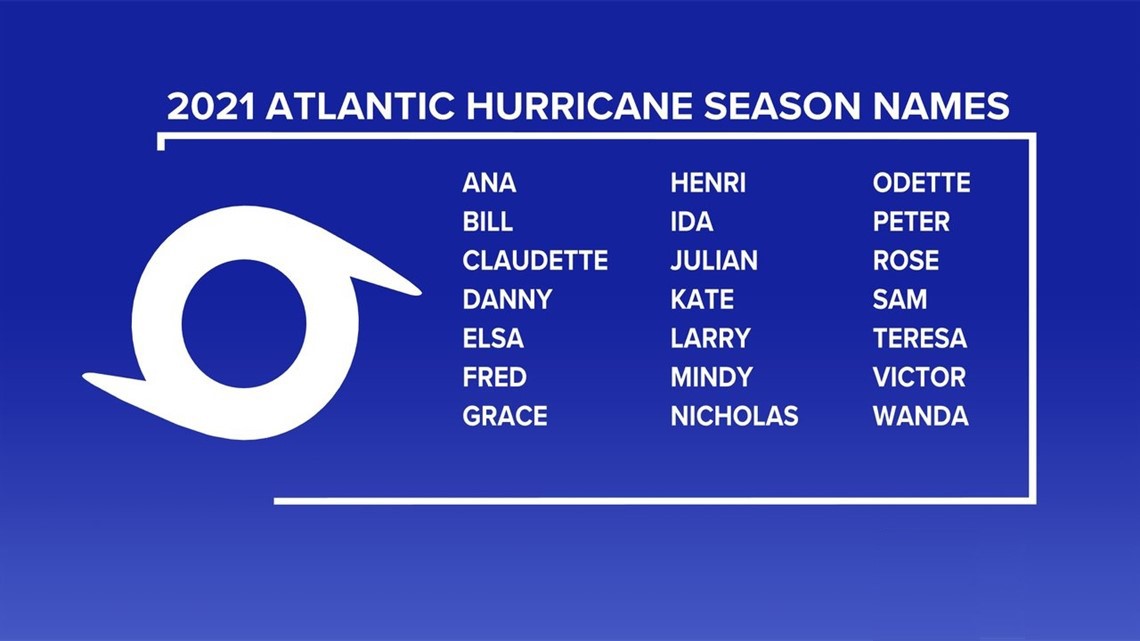
There has been only one other season that used the extra set of names, and that was in 2005. The World Meteorological Organization released a new set of supplemental names that will be used if the season exhausts the standard list.

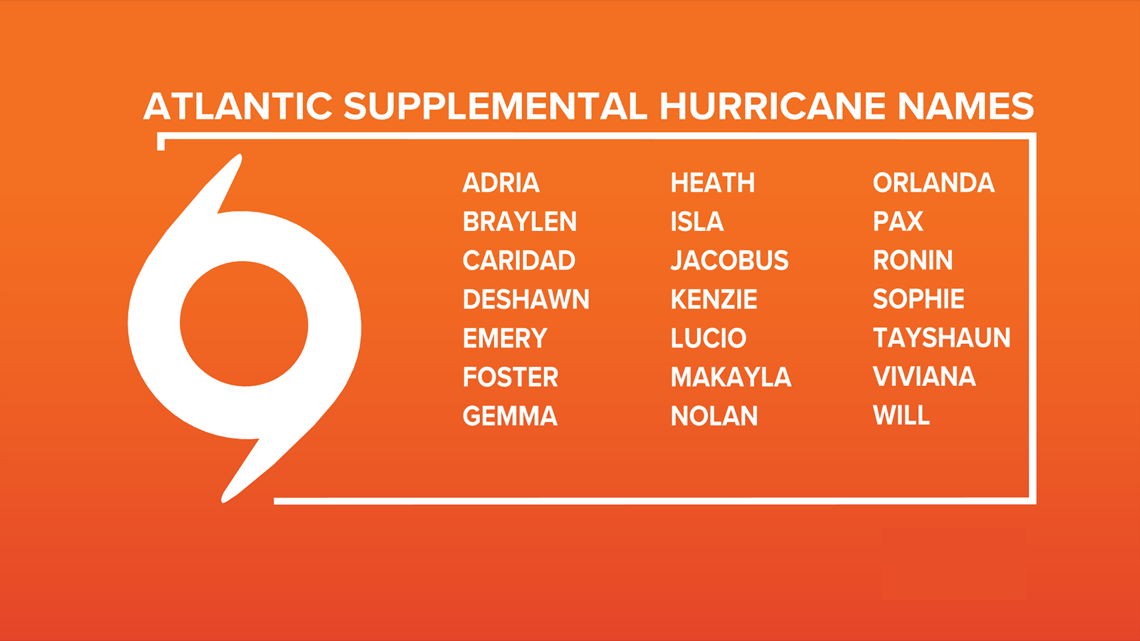
Be prepared if a storm comes our way
BEFORE THE STORM
- Make a home inventory
- Have a current copy of your declarations page that has your policy number and your agent's number
- Review your policy with your insurance agent to determine if you have adequate coverage
- Repair loose boards, shingles, shutters and downspouts to prevent them from becoming an issue in high winds or torrential rain
- Have an evacuation plan, and include plans for your pets
- Make sure your emergency equipment is in working order, including a battery-powered radio, flashlights and extra batteries. Also, make sure to gather all medicine, replenish your first-aid kit and stock a week's worth of non-perishable food and water
- Charge your cell phone and fill your car with gas
- Program all emergency phone numbers
DURING THE STORM
- If you are advised to evacuate, leave as soon as possible. Retain all related receipts - they may be considered in your claim. If you aren't in a recommended evacuation and you plant to stay home, stay informed by listening to weather alerts
- Keep windows and doors closed at all time, and, if possible, board them up with wooden or metal shutters
- Stay away from the windows and in the center of the room, or, stay in an interior room
- Avoid flood water, as it may be electrically charged from downed power lines
- Check on family members and friends
AFTER THE STORM
- Check to be sure your family members are safe
- If you did evacuate, wait for official notice that it is safe to re-enter your neighborhood and your house
- Document damaged property, and take photos and videos. Don't dispose of any damaged items without approval
- Keep a record of any temporary repairs or expenses to prevent further damage to your property.
GET NEWS & WEATHER ALERTS | Download the 12News App to your mobile device

